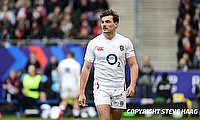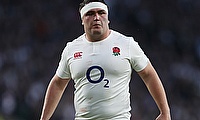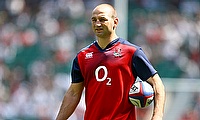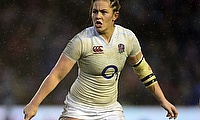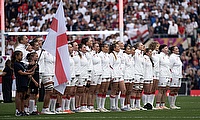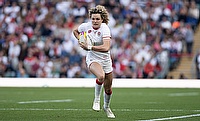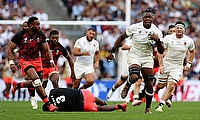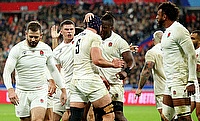Foreign Players for England
England have just named their 45 man training squad for the Rugby World Cup. Fithteen of these players were not born in England and come from ten different countries. In this article I'm going to discuss whether this is right and what are the benefits and downfalls to English rugby.
Fifth teen of this group will be dropped before the World cup Squad is announced so this number may drop but there are some players that just missed out so the number of overseas born players could have been higher.
There are differing circumstances that have led to their selection and eligibility for England. Even some player's place of birth may surprise you with Simon Shaw being born in Kenya and Charlie Sharples being born in Hong Kong coming to mind.
This discussion does have differing arguments the main being did the player become available to play for England after their Rugby career had started. Alex Corbisiero was born in New York but moved to England when he was five; surely there is no issue here. The same can be said for Dylan Hartley (New Zealand moved at 15), Simon Shaw (Kenya moved at 16) & Manu Tuilagi (Samoa moved at 13). Tuilagi may have doubters as his brothers have represented Samoa but I don't think this should be held against him.
All these players were children when they came to England and have grown up playing in England and represented their adopted country at junior levels. As have Charlie Sharples, Delon Armitage (Born Trinidad) and Joe Simpson (Born Australia).
The bigger argument is that should a player be allowed to move to England or any country as an adult professional rugby player and then play for that country. This could fall under two conditions; residency or family heritage. The residency issue raises more arguments.
It's under residency criteria that Riki Flutey, Hendre Fourie, Paul Doran-Jones and Matt Stevens have been made eligible for England. Does living in a country for 3 or more years give them the right and honor to represent that country?
Well yes as the laws stands.
All these players were not deemed ready or good enough to play for their native countries moved to England and have proved them selves good enough to play for England. As the rules stand they are well within their right and coaches will continue to pick them if it is an advantage to their team. The number may have risen recently but this isn't a new occurrence in world rugby let alone England; not many England fan's raised the issue that Mike Catt was born in South Africa after he helped win the World Cup.
New Zealand have also had plenty of players not born on their shores, profiting from bringing young Pacific Islanders over such as Jerry Collins (Samoa), Va'aiga Tuigamala (Samoa) and Joe Rokocoko (Fiji). These players were all good enough to play for their native countries but chose to play for the more successful team. Unfortunately we have to admit that financial lure and prestige of the All Blacks usually wins out. With dual nationality players or young potential players who are offered a better education in New Zealand I can understand and agree with their decision to play for the All Blacks. There is a new set of circumstances that is more worrying.
Willie Ripia a New Zealand born player has recently moved to Western Force in Australia. He represented New Zealand at age level up until U21 but his contract was conditional that he commits his future to playing for Australia. Just before he signed for Western Force he was playing for the New Zealand Maori, this had to be a decision made purely for financial reasons. Will Australians take to player that may be marked as a mercenary?
France tried to do the same thing with New Zealand's Philemon Toleafoa and Ireland has done it with former Marlborough player Jeremy Manning. Being able to buy an international player isn't the right way to be going and in my opinion it degrades the value of the national shirt.
There is another side to the this argument that in most peoples eyes is even worse. Even if you don't agree with any of the internationals above or how they came to be eligible to play for an adopted country, that is the only country they had represented at the highest level. Rugby League and Rugby union are classed as two completely separate sports no matter the similarly in name or nature. Due to this previous representation does not effect you're eligibility through residency in the other code. In the past Vainikolo and Henry Paul both represented New Zealand in Rugby league and went on to play for England in Rugby Union. Shontayne Hape is currently in this situation. These players have warn the colours of one country and then another, all be it in another sport.
There have been IRB meetings to discuss the possibility of players in Rugby Union switching their nationality after winning caps for another country. This could result in many more players in this situation. The idea is to help rugby though. The opportunity would only be open to players eligible to play for second tier nations such as the Pacific Islands. For example they would profit from players who are eligible for them but had previously played for New Zealand. This would make second tier nations more competitive and improve the worldwide standard of international rugby. The argument would be though does it degrade the national shirt if a player is playing for a country they previously discarded?
There are a growing number of rugby administrators and fans who believe the current laws do much to damage the credibility of international rugby. Whether you believe this or not, players born in a different country will continue to represent adopted nations. The IRB set the ground rules and national coaches will continue to select players according to this. Many national teams would look very different if only players born on their shores could represent them. England are benefiting from these laws as there are very few top flight English born players representing other tier one nations, I'm sure you would struggle to name many. Here are a few that might surprise you though; Dan Lydiate (Wales born in Salford), George North (Wales born King's Lynn), Mike McCarthy (Ireland born London) & Hugo Southwell (Scotland born London)
Here is the full list of players picked for England's training squad born outside of England
America; Alex Corbisiero
Australia; Joe Simpson
Hong Kong; Charlie Sharples
Ireland; Paul Doran-Jones
Jersey; Matt Banahan
Kenya; Simon Shaw
New Zealand; Thomas Waldrom, Riki Flutey, Shontayne Hape, Dylan Hartley
Samoa; Manu Tuilagi
South Africa; Hendre Fourie, Mouritz Botha, Matt Stevens
Trinidad; Delon Armitage
www.Kooga-Rugby.com

